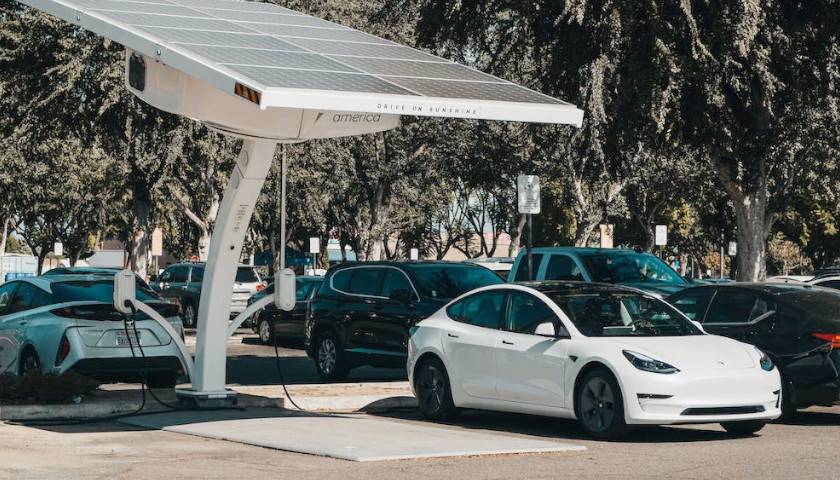by Eric Lendrum
Despite increasing mandates from various state governments to produce and purchase more electric vehicles, many of the new cars are simply sitting on the dealers’ lots as consumers refuse to buy them.
According to Axios, research from Cox Automotive has highlighted the struggles that electric vehicle (EV) producers face as customers are reluctant to make the switch from gas-powered vehicles to electric. Cox carried out a midyear industry review which was presented to journalists and stakeholders, showcasing the uneasy future for EV manufacturers.
Thus far in the year 2023, EV sales account for a mere 6.5 percent of the entire American auto market; however, the total number of EVs sold is expected to surpass one million for the first time ever. Additionally, at least 51 percent of consumers are allegedly considering purchasing an EV, up from 38 percent in 2021.
However, the increased manufacturing of EVs appears to be too far ahead of the actual demand. Nationwide, the supply of EVs in stock has increased by 350 percent in just 2023 alone, resulting in over 92,000 total units. That amounts to a 92-day supply of EVs, which is nearly twice the industry-wide average of a 54-day supply of regular vehicles in inventory. That number reflects the post-pandemic struggle to sell more vehicles, as the pre-pandemic average was about 70 days.
Among individual companies that are selling EVs, the struggle to sell becomes even more apparent. The Koren brand Genesis has sold just 18 of its electric G80 sedans over the course of the 30-day period preceding June 29th, with each car costing $82,000. Overall, the company has 210 such cars in stock nationwide, amounting to a 350-day supply.
Another factor that could be hindering EV sales is the high price tag often associated with them. In the case of Audi, its three most recent EV models – the Q4 e-tron, the Q8 e-tron, and the GMC Hummer EV SUV – the prices are all so high that the vehicles are ineligible for federal tax credits. The same goes for Kia, with its EV6, Hyundai Ioniq 5, and Nissan Ariya models.
The public still remains rather skeptical of EV performances in the field, with numerous reports of EVs breaking down, using up far more energy than th ey are supposed to, and charging stations not being frequent enough on longer trips, among other issues. Nevertheless, some states are mandating the increased purchase and use of electric vehicles over gas-powered vehicles, ostensibly to fight against so-called “global warming.”
– – –
Eric Lendrum reports for American Greatness.




